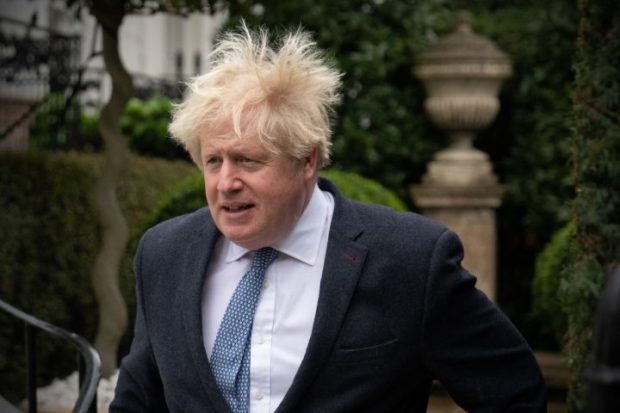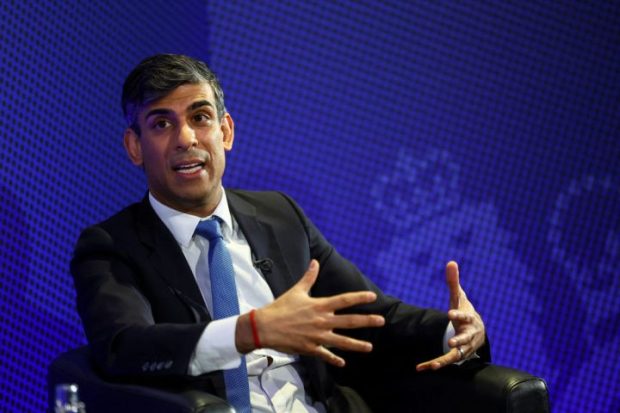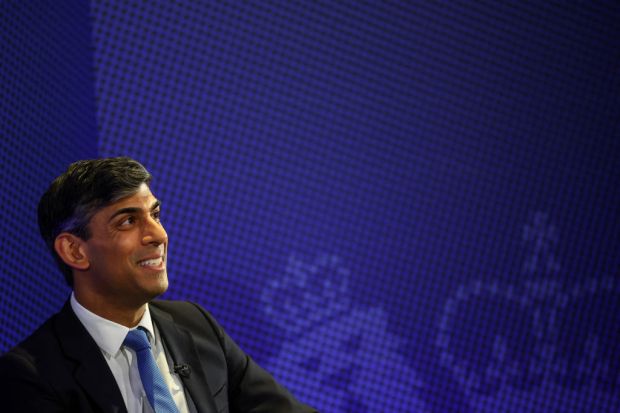Finally the pandemic fog is lifting and the outlines of post-Covid politics are starting to take shape. While the Government is perfectly capable of generating many more unfortunate headlines by mishandling the Covid exit wave – or indeed, in the case of Matt Hancock, ignoring the ‘hands, face, space’ rule – it is clear that one key relationship will largely determine its longer-term fortunes.
It is that between off-the-cuff scruff Boris Johnson and his immaculately turned-out Chancellor, Rishi Sunak – the man in the ironed mask.
The time is fast approaching when Sunak’s own reputation will be on the line and when simply deferring to the PM’s predilections will no longer be a sustainable way of running the Treasury, no matter how smooth the Chancellor’s public patter.
During the emergency phase of the pandemic it was easy for Sunak, ‘unencumbered by dogma’, as he said himself, to go along with Johnson’s big-spending instincts. It was also the sensible thing to do to stave off a depression and it largely worked.
But Sunak can no longer allow Johnson to treat the public finances in the same careless way he has managed his personal finances – there are no donors to cover bills this large. And there comes a time when exceptional items of expenditure can no longer be deemed exceptional but start instead to look like a worrying pattern of behaviour.
Not only does Sunak find himself in nominal charge of successive eye-watering annual deficits and a record peace-time national debt, but more huge Johnsonian bills are coming down the track.
For starters, there is the long-promised plan to sort out the creaking social care system – probably involving a permanent increase in public spending in the region of £10bn a year. You can treble that – and then some – for meeting the pledge to get three-quarters of the way to a net zero carbon economy by 2035.
Then there are all the levelling-up infrastructure bills to be met, often involving expenditure on projects that the Treasury’s own bean-counters calculate not to offer good value for money. Sling in another few billion for sustaining the pensions ‘triple lock’ in a high wage rise year, and it starts to look more like curtains than wallpaper for the Treasury’s reputation as a responsible steward of the public finances.
And all of this when the threat of inflation stalks the land again, with the knock-on implications that interest rates may need to rise with horrific consequences for the cost of servicing public debt.
Frankly, if there are not reports emerging of serious tension between the PM and Chancellor by the autumn, then Sunak will not be doing his job properly. Not only is a proper three-year spending review that seeks out departmental savings overdue, but an unpopular round of tax rises also appears inevitable.
If he is not to be dismissed as a yes man and a forelock tugger, with damaging consequences for his own long-term ambitions, Sunak is going to have to stand his ground. He will be acutely aware of what happened when his predecessor Sajid Javid did just that over the PM’s plan to ‘merge’ their teams of advisers (i.e. to put No10 in charge of economic policy). Javid was swiftly out on his ear.
There will be those who say Johnson cannot afford to lose another Chancellor in such a manner, and it is true that the consequences of doing so would be much more difficult this time. But ultimately the PM still has enough capital in the bank to sack whoever he wants to.
Much will depend on the two men maintaining trust between them and understanding the different pressures that each has to face. Down the years there have been some era-defining fall-outs between PMs and chancellors, with Thatcher/Lawson and Blair/Brown the examples that spring most readily to mind. It was observing this that led George Osborne to resolve never to let a cigarette paper come between him and David Cameron, already a good friend when they entered high office together.
But there is another way. In the early days of the New Labour regime, Blair and Brown kept their intermittent disagreements (known to aides as the TB-GBs) within reasonable bounds. And though the high-level bickering generated thousands of column inches of coverage, the effect was not to damage the administration’s popularity.
On the contrary, one side effect was that Labour came to dominate both sides of the debate on many issues. Prospective eurozone membership was a case in point, with its enthusiasts backing Blair and its opponents correctly figuring that they could depend on Brown and his lieutenant Ed Balls to block it. One consequence was to squeeze the opposition out of the picture.
If Johnson and Sunak could find a way to combine the rock-solid personal relations of Cameron and Osborne with an understanding that their different roles will lead them to stress different priorities then they could hope to pull off the same trick, with the PM being seen to champion red wall spending, while the Chancellor nonetheless keeps extravagance in check.
That would necessitate Johnson having the humility to allow Sunak some significant public wins, possibly over mid-term tax rises and a ‘recalibrating’ (watering down) of the net zero strategy.
Sunak has already been showing signs of independence – refraining from explicitly backing the replacement of household gas boilers during a GB News interview with Andrew Neil, and also this week raising public expectations of ‘Freedom Day’ occurring in the most comprehensive form imaginable on 19 July.
The ball is now in Johnson’s court. Will he display a Trump-like thin skin or will he see the merit in allowing a counter-balance to some of his own traits to emerge within his administration? There could be trouble ahead.
Got something to add? Join the discussion and comment below.
Get 10 issues for just $10
Subscribe to The Spectator Australia today for the next 10 magazine issues, plus full online access, for just $10.


















Comments
Don't miss out
Join the conversation with other Spectator Australia readers. Subscribe to leave a comment.
SUBSCRIBEAlready a subscriber? Log in